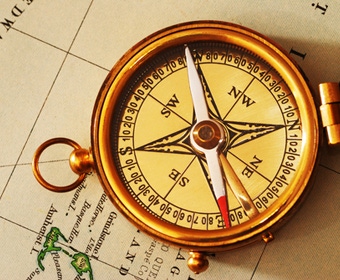Vodafone has announced that it will make its location based services software open source group-wide, following its decision to step back from offering turn-by-turn navigation services. Vodafone acquired Swedish location firm Wayfinder for €26m in December 2008 but revealed in March this year that the unit would cease operations in the face of free offerings from the likes of Nokia and Google.
July 15, 2010

Vodafone group has announced that it will make its location based services software open source, following its decision to step back from offering turn-by-turn navigation services.
The carrier acquired Swedish location firm Wayfinder for €26m in December 2008 but revealed in March this year that the unit would cease operations in the face of free offerings from the likes of Nokia and Google.
Now Vodafone is releasing its code in the hope of stimulating development from independent players that will see new applications brought forth for its customers.
“Given our decision to stop developing turn by turn location based services as part of our core business, it seemed an obvious choice to make the code we own open source,” said Pieter Knook, director of internet services at Vodafone Group. “We look forward to seeing its continued use in all sorts of different applications in the future.”
Competition in the location services market is intensifying and traditional personal navigation players like Garmin and TomTom saw their share prices dive when Nokia announced its free mapping services. In a bid to hit back at mobile industry initiatives, Garmin recently carried out a test drive of the Calais to Paris route, using an Android mobile phone, an O2 UK prepaid SIM and O2 UK data plan, as well as Google Maps Navigation.
The 185 mile trip cost £36 in roaming charges one way, but could cost between £24 to £39 depending on your provider, and between £52 and £78 for the return journey, the firm said. Garmin worked this out as a cost for navigation services of over £0.20 per mile. O2 responded, suggesting Garmin’s figures were somewhat wide of the mark.
The navigation firm acknowledged that the cost may be slightly cheaper for a postpaid subscriber, but the service still uses around 13MB of data for a one-way trip, Garmin said. arguing that free offerings typically download mapping data on the fly.
Garmin’s head of communications, Anthony Chmarny said: “Using free satellite navigation isn’t as free as it would like to make out, especially when you are using your mobile phone abroad. Many of the well known navigation products use the mobile phone network to download maps as they go, meaning people could end up with a nasty shock when their mobile phone bills arrive – the costs could be double that of the fuel used for the journey they were navigating.
Meanwhile, German developer Skobbler, which recently released its own free satnav app for the iPhone, said last week that, since its UK launch just three weeks ago, the app had been downloaded more than 72,000 times.
To put this figure into perspective, a total of 266,000 PNDs were shipped into the UK market in the first quarter of 2010, according to industry researcher Canalys, the firm said, with Skobbler’s three week run equalling 27 per cent of all UK PND shipments in the first quarter of 2010. In “the coming days” Skobbler will launch an Android version of its app, the firm said.
Skobbler uses community maps from OpenStreetMap (OSM), which already has over 250,000 users worldwide dedicated to updating and creating a free map of the world.
About the Author(s)
You May Also Like








.png?width=300&auto=webp&quality=80&disable=upscale)


_1.jpg?width=300&auto=webp&quality=80&disable=upscale)


.png?width=800&auto=webp&quality=80&disable=upscale)